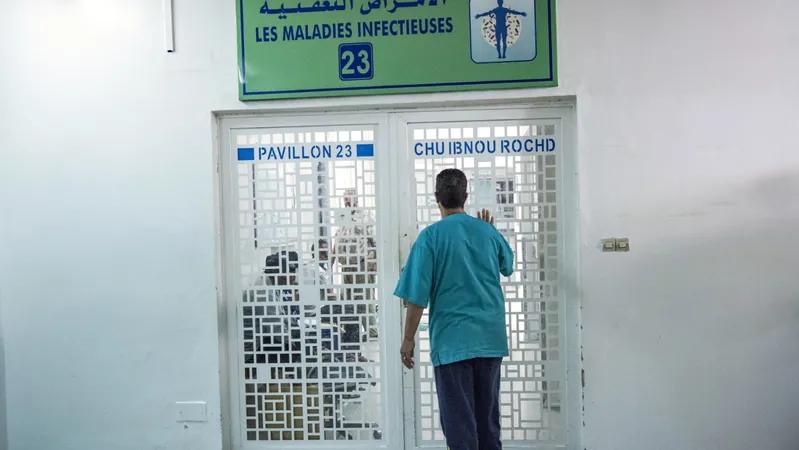
Urgent Action Required as Middle East and North Africa Faces Alarming Surge in HIV Infections
2025-04-02
Author: Daniel
A dire new report reveals that the Middle East and North Africa (MENA) region is grappling with what experts are calling an "escalating HIV epidemic," driven by rampant new infections amidst ongoing conflicts and forced displacement. The troubling findings emerge from Frontline AIDS, a leading global organization dedicated to combating the HIV crisis, in its recent Prevention and Accountability Report.
The data highlights a shocking 116 percent increase in HIV cases since 2010 across key nations including Egypt, Jordan, Lebanon, Morocco, and Tunisia. This stands in stark contrast to the global trend, where new infections have decreased by 39 percent during the same timeframe. In Egypt alone, the report cites a staggering 609 percent rise in cases, raising urgent red flags about the effectiveness of current health responses in the region.
Factors contributing to this alarming rise are multifaceted and include ongoing humanitarian crises, political instability, and the breakdown of essential public health services. The report draws particular attention to marginalized communities such as LGBTQ+ individuals, sex workers, people who inject drugs, and prisoners, who remain disproportionately affected. These groups often face severe social stigma and restrictive laws that hinder their access to crucial HIV prevention and treatment resources.
Worryingly, the UNICEF data from 2022 indicates that only 67 percent of individuals aged 15 and older living with HIV were aware of their status, and only half were receiving treatment—underscoring a critical gap in necessary health services. Alarmingly, around 20 percent of new infections are occurring among young people aged 15 to 24, signaling a potential public health crisis for future generations.
Compounding the issue is the significant shortfall in financial support for HIV efforts in the region. In 2023, MENA received a mere 1 percent of global HIV funding, operating with only 15 percent of the financial resources required for an effective response. This funding gap of 85 percent, alongside economic instability and soaring inflation, severely hampers efforts to manage the epidemic and reduce infections.
Frontline AIDS officials have voiced their concerns about these trends. Golda Eid, the organization's programme lead, emphasized the urgent need for political leadership and funding to reverse the trend of rising HIV cases. “The region is being left behind in the fight against HIV. Immediate action and investment are essential to prevent the epidemic from escalating further,” she remarked.
Moreover, the head of international actions at Frontline, Mohammed El Khammas, cautioned that the figures presented may actually underestimate the crisis. “The increase is linked to inadequate testing coverage. Without a deeper understanding of the sizes of key affected populations, we cannot fully grasp the magnitude of HIV in these communities,” he warned.
The report calls upon governments and international donors to increase investments in HIV prevention and to develop national strategies aimed at addressing the stigma and discrimination that persistently hinder effective healthcare outreach. Without immediate and robust intervention, the trajectory of the HIV epidemic in the MENA region could spiral out of control, making it imperative for stakeholders at all levels to prioritize HIV response efforts and pave the way for a healthier future.



 Brasil (PT)
Brasil (PT)
 Canada (EN)
Canada (EN)
 Chile (ES)
Chile (ES)
 Česko (CS)
Česko (CS)
 대한민국 (KO)
대한민국 (KO)
 España (ES)
España (ES)
 France (FR)
France (FR)
 Hong Kong (EN)
Hong Kong (EN)
 Italia (IT)
Italia (IT)
 日本 (JA)
日本 (JA)
 Magyarország (HU)
Magyarország (HU)
 Norge (NO)
Norge (NO)
 Polska (PL)
Polska (PL)
 Schweiz (DE)
Schweiz (DE)
 Singapore (EN)
Singapore (EN)
 Sverige (SV)
Sverige (SV)
 Suomi (FI)
Suomi (FI)
 Türkiye (TR)
Türkiye (TR)
 الإمارات العربية المتحدة (AR)
الإمارات العربية المتحدة (AR)